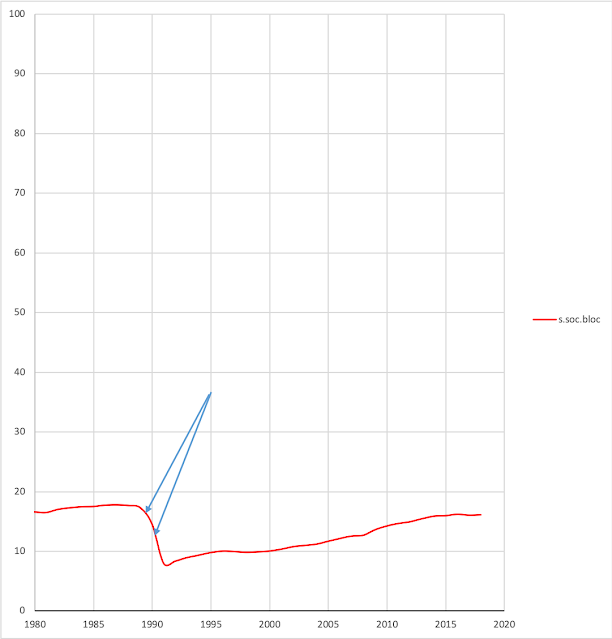The Great Re-Disembedding
Is it possible that the most important thing that helps us understand Russia's war in Ukraine is not that it is for anti-fascist "liberation?" Nor that it is "simply" an illiberal-arch-nationalist political re-occupation of the "near-abroad."
Instead, it may well be that it is a military-geopolitical attempt at controlling the resources of a neighbor (much of those resources had been, as we know, built up with resources of the USSR, including Russia) on part of one capitalist geopolitical power (Russia), aiming to avoid, prevent, deter the expansion of property and control by set of rival geopolitical-economic interests (US and EU)? Is it possible that, with Karl Polányi, the post-state-socialist "liberation" of the erstwhile-Soviet-"bloc" involved the re-disembedding of the state socialist economies, i.e., removing the social and political structures of property and control that had enveloped it until then? Would it not have been a reasonable thing to expect this kind of political violence on part of a large semiperipheral neo-capitalist state in the post-state-socialist context?
Could this idea serve as a foundation of a materialist analysis of large-scale social change in the world today?
Is it possible, more broadly, that the end of the organizational / institutional forms of the state socialist project of emancipation (experiments that can be described, in terms of Karl Polányi's 1944 book, The Great Transformation, as the socio-political re-embedding of capital and the market, the re-submission of "the economy" of a set of semiperipheral capitalist countries in society's collective interests, with the latter expressed, albeit very imperfectly, by the redistributive state) was all about a naked resource grab by global capital? To put simply, is it possible that the historical "essence" of the destruction of the state socialist experiments is in the forcing of hundreds of millions of people to lose, and be forever deprived of, "their"--no matter how imperfect, undemocratic, yet at least potentially real, future--control over the means of production of "their" societies?Is it possible that China's refusal to "let go" of the share of collective (central, provincial and municipal state) ownership in its vast and fast growing economy is "the west's" biggest current "problem" with China, simply because the PRC, in spite of its openness to foreign technology and even partial, private ownership, still represents the largest single remaining "chunk" of property in the world that is under effective non-private, non-individual ownership and control? Karen Lin and her co-authors reported in 2020 that, in 2017, 75 Chinese state-owned enterprises were on the Fortune Global 500 list. (To put this in perspective, the Fortune Global 500 list included only 27 non-Chinese state-owned enterprises.)
As the graph above (Fan and Hope, quoting Chinese official statistics) suggests, while declining in relative shares, state owned enterprises still represented, in 2011, over 40% of the total assets, approximately 25% of the total industrial output, and slightly above 20% of the labor force in China.
Is it possible that the world's "left" has almost totally missed the most glaring structural problems "of our time" (again to make a terminological reference to Karl Polányi's marvelous book quoted above) by not mobilizing against the re-disembedding of what little embedded economies continue to exist? Where are the Polányian countermovements--the collective social efforts "to transcend the self-regulating market by consciously subordinating it to democratic society"?




Nice. You could be more nuanced in your characterization of the socially embedded character of state socialist economies. The social embedded ness may have looked and experienced as more or less benign depending on the context.
ReplyDeleteOf course. Why not write what you have in mind and post it (along with your name-unless that would endanger you).
Delete